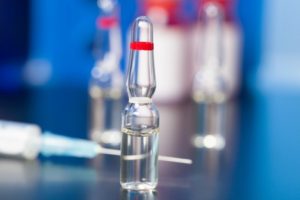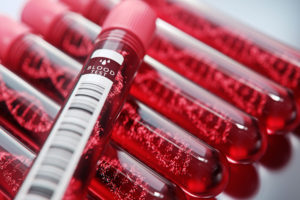Chemotherapy Overview
Chemotherapy is a chemical drug treatment that uses powerful chemicals to kill and destroy rapid growing cells in the body. Chemotherapy is most often used to treat cancer, since cancer cells grow and multiply much more quickly than most cells in the body.
Many different chemotherapy drugs are available. Chemotherapy drugs can be used alone or in combination to treat a wide variety of cancers. Though chemotherapy is an effective way to treat many types of cancer, chemotherapy treatment also carries a risk of side effects. Some chemotherapy side effects are mild and treatable, while others can cause serious complications.
Chemotherapy is often used in combination with other therapies, such as surgery, radiation, or hormone therapy. The use of combination therapy depends on:
- The stage and type of cancer
- Overall health
- Earlier cancer treatments you’ve had
- Location of the cancer cells
- Personal treatment preferences
Chemotherapy is considered a systemic treatment, which means it affects the entire body. Chemotherapy has been proven to effectively attack cancer cells, but it can cause serious side effects that can severely impact your quality of life. You should weigh these side effects against the risk of going untreated when deciding if chemotherapy is right for you.

Uses of Chemotherapy
Chemotherapy is used to kill cancer cells in patients with cancer. Chemotherapy is primarily used to:
- Lower the total number of cancer cells in your body
- Reduce the likelihood of cancer spreading
- Shrink tumor size
- Reduce current symptoms
If you’ve undergone surgery to remove a cancerous tumor, such as a lumpectomy for breast cancer, your oncologist may recommend chemotherapy to ensure that any lingering cancer cells are killed, as well.
Chemotherapy is also used to prepare you for other treatments. It could be used to shrink a tumor so it can be surgically removed, or to prepare you for radiation therapy. In the case of late-stage cancer, chemotherapy may help relieve pain. Besides treatment for cancer, chemotherapy may be used to prepare people with bone marrow diseases for a bone marrow stem cell treatment, and it may be used for immune system disorders. Doses much lower than those used to treat cancer can be used to help disorders in which the body’s immune system attacks healthy cells, like lupus erythematosus or rheumatoid arthritis.
Chemotherapy for conditions other than cancer
Some chemotherapy drugs have proved useful in treating other conditions, such as:
- Bone marrow diseases: Diseases that affect the bone marrow and blood cells may be treated with a bone marrow transplant, also known as a stem cell transplant. Chemotherapy is often used to prepare for a bone marrow transplant.
- Immune system disorders. Lower doses of chemotherapy drugs can help control an overactive immune system in certain diseases, such as lupus erythematosus or rheumatoid arthritis.
Risks of Chemotherapy
Side effects of chemotherapy drugs can be significant. Each drug has different side effects, and not every drug causes every side effect. Chemotherapy is designed to kill cells that divide quickly. While cancer cells are the kind that divide quickly, other cells in your body do this, as well. Following are the common side effects that occur during chemotherapy treatment:
- Anemia
- Bleeding
- Constipation
- Dry mouth
- Easy bruising
- Fatigue
- Fever
- Concentration problems
- Fertility problems
- Diarrhea
- Hair loss
- Insomnia
- Infections
- Lymphedema
- Loss of appetite
- Memory problems
- Mouth sores
- Nausea
- Neuropathy
- Nail changes
- Pain
- Sexual changes
- Skin changes
- Vomiting
- Weight loss
Many of these side effects can be prevented or treated. Most side effects subside after treatment ends.
Long Term Side Effects of Chemotherapy
Chemotherapy drugs can also cause side effects that don’t become evident until months or years after treatment. Late side effects vary depending on the chemotherapy drug but can include:
- Damage to lung tissue
- Heart problems
- Infertility
- Kidney problems
- Nerve damage (peripheral neuropathy)
- Risk of a second cancer
There’s also the possibility of developing a second cancer as a result of chemotherapy.
Preparation for Chemotherapy
Preparation for chemotherapy depends on which chemotherapy drugs you’ll receive and how they’ll be administered. Your doctor will give you specific instructions to prepare for your chemotherapy treatments. You may need to:
- Have a device surgically inserted before intravenous chemotherapy: If you’ll be receiving your chemotherapy intravenously into a vein, your doctor may recommend a device, such as a catheter, port or pump. The catheter or other device is surgically implanted into a large vein, usually in the chest. Chemotherapy drugs can be given through the device.
- Undergo tests and procedures to make sure your body is ready to receive chemotherapy: Blood tests to check kidney and liver functions and heart tests to check for heart health can determine whether your body is ready to begin chemotherapy. If there’s a problem, your doctor may delay your treatment or select a different chemotherapy drug and dosage that’s safer for you.
- See your dentist: Your doctor may recommend that a dentist check your teeth for signs of infection. Treating existing infections may reduce the risk of complications during chemotherapy treatment, since some chemotherapy may reduce your body’s ability to fight infections.
- Plan ahead for side effects: Ask your doctor what side effects to expect during and after chemotherapy and make appropriate arrangements. For instance, if your chemotherapy treatment will cause infertility, you may wish to consider your options for preserving your sperm or eggs for future use. If your chemotherapy will cause hair loss, consider planning for a head covering.
- Make arrangements for help at home and at work: Most chemotherapy treatments are given in an outpatient clinic, which means most people are able to continue working and doing their usual activities during chemotherapy. Your doctor can tell you in general how much the chemotherapy will affect your usual activities, but it’s difficult to predict exactly how you’ll feel.Ask your doctor if you’ll need time off work or help around your home after treatment. Ask your doctor for the details of your chemotherapy treatments so that you can make arrangements for work, children, pets or other commitments.
- Prepare for your first treatment: Ask your doctor or chemotherapy nurses how to prepare for chemotherapy. It may be helpful to arrive for your first chemotherapy treatment well rested. You might wish to eat a light meal beforehand in case your chemotherapy medications cause nausea. Have a family member or a friend drive you to your first chemotherapy treatment. Most people can drive themselves to and from chemotherapy sessions. But the first time you may find that the medications make you sleepy or cause other side effects that make driving difficult.
Types of Chemotherapy Drugs
Your doctor chooses which chemotherapy drugs you’ll receive based on several factors, including the following:
- Type of cancer
- Stage of cancer
- Overall health
- Previous cancer treatments
- Overall goals and preferences
Chemotherapy Delivery and Administration
Your doctor can work with you to consider all variables and determine the best course of your treatment suited for your disease. Chemotherapy is typically given in a pill form or directly into veins by an injection or an IV. In addition to these two forms, chemotherapy may also be administered in several other ways.
Chemotherapy delivery options include the following:
- Chemotherapy can be delivered directly into the tumor, depending on the tumor’s location. If you undergo surgery to remove the tumor, your doctor can implant slow-dissolving discs that release medications over time.
- Some skin cancers can be treated with chemotherapy creams.
- Chemotherapy can be delivered to a specific part of the body through localized treatment, such as directly into the abdomen, chest, central nervous system, or into the bladder through the urethra.
- Some types of chemotherapy can be taken by mouth through pills.
- Liquid chemotherapy drugs can be delivered in single shots, or you can have a port installed where a needle is inserted for each treatment. The infusion method with a port only involves pain at the injection site during the first visit, but the port needle can loosen depending on your level of activity.
Where you receive treatment depends on your chosen delivery method. For instance, if you use creams or pills, you can give yourself treatments at home. Other procedures are usually performed at a hospital or a cancer treatment center. Your chemotherapy schedule, as in how often you receive treatment, will be customized for you. It can be changed if your body doesn’t handle the treatment well, or it can be increased or decreased depending on how well the cancer cells react to treatments.
Outlook after Chemotherapy
Your cancer doctor (oncologist) will regularly meet you during the chemotherapy treatment. Your oncologist will ask about any side effects you’re experiencing, since many can be controlled.
Depending on your situation, you may also undergo scans and other tests to monitor your cancer during chemotherapy treatment. These tests can give your doctor an idea of how your cancer is responding to treatment, and your treatment may be adjusted accordingly.

Bay Biosciences is a global leader in providing researchers with high quality, clinical grade, fully characterized human tissue samples, bio-specimens and human bio-fluid collections from cancer (tumor) tissue, cancer serum, cancer plasma cancer PBMC and human tissue samples from most other therapeutic areas and diseases.
Bay Biosciences maintains and manages it’s own bio-repository, human tissue bank (biobank) consisting of thousands of diseased samples (specimens) and from normal healthy donors available in all formats and types. Our biobank procures and stores fully consented, deidentified and institutional review boards (IRB) approved human tissue samples and matched controls.
All our human human tissue collections, human specimens and human bio-fluids are provided with detailed samples associated patient’s clinical data. This critical patient’s clinical data includes information relating to their past and current disease, treatment history, lifestyle choices, biomarkers and genetic information. Patient’s data is extremely valuable for researchers and is used to help identify new effective treatments (drug discovery & development) in oncology, other therapeutic areas and diseases. This clinical information is critical to demonstrate their impact, monitor the safety of medicines, testing & diagnostics, and generate new knowledge about the causes of disease and illness.
Bay Biosciences banks wide variety of human tissue samples and biological samples including cryogenically preserved -80°C, fresh, fresh frozen tissue samples, tumor tissue samples, FFPE’s, tissue slides, with matching human bio-fluids, whole blood and blood derived products such as serum, plasma and PBMC’s.
Bay Biosciences is a global leader in collecting and providing human tissue samples according to the researchers specified requirements and customized, tailor made collection protocols. Please contact us anytime to discuss your special research projects and customized human tissue sample requirements.
Bay Biosciences provides human tissue samples (human specimens) from diseased and normal healthy donors; including peripheral whole-blood, amniotic fluid, bronchoalveolar lavage fluid (BAL), sputum, pleural effusion, cerebrospinal fluid (CSF), serum (sera), plasma, peripheral blood mononuclear cells (PBMC’s), saliva, Buffy coat, urine, stool samples, aqueous humor, vitreous humor, kidney stones, renal calculi, nephrolithiasis, urolithiasis and other bodily fluids from most diseases including cancer. We can also procure most human bio-specimens and can do special collections and requests of human samples that are difficult to find. All our human tissue samples are procured through IRB approved clinical protocols and procedures.
In addition to the standard processing protocols Bay Biosciences can also provide human plasma, serum, PBMC bio-fluid samples using custom processing protocols, you can buy donor specific sample collections in higher volumes and specified sample aliquoting from us. Bay Biosciences also provides human samples from normal healthy donors, volunteers, for controls and clinical research, contact us Now.
日本のお客様は、ベイバイオサイエンスジャパンBay Biosciences Japanまたはhttp://baybiosciences-jp.com/contact/までご連絡ください。
